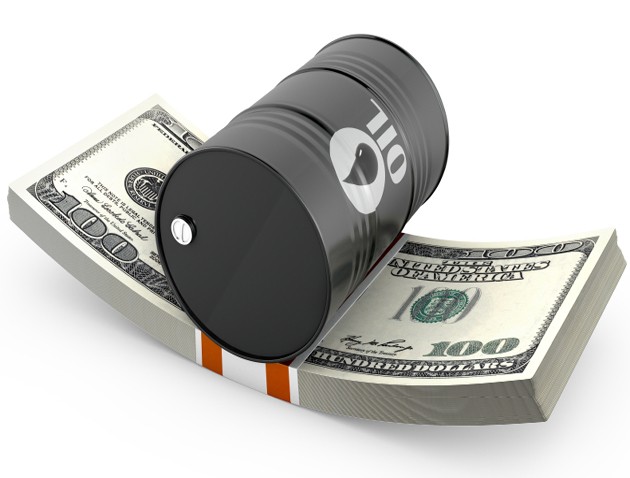Oil Stocks v ETF Which Is a Better Buy
Post on: 12 Июль, 2015 No Comment

Oil stocks pay dividends, but an oil ETF is a closer play on crude pricing
Oil Stocks vs. Oil ETF Which Is a Better Buy?
Oil stocks have become commonplace in many long-term portfolios, but an oil ETF is another way to bet on the price of crude.
Why do so many investors have their eyes on oil stocks? Because global energy dem and is skyrocketing as our world’s population continues to grow and modernize. In fact, integrated oil stock Exxon Mobil (XOM ) predicts that global demand for energy will increase roughly 30% by 2040. The bulk of that gain will be led by economic growth from non-OECD countries and developing nations.
So oil stocks are seen as a way to play the potential rise in commodity prices that come along supply/demand imbalances. Even with advancing technology, there is only a finite supply of oil on earth. Of course, an oil ETF can be used to make a similar play.
See, with the recent growth in the popularity of exchange-traded funds (ETFs), investors now have a whole host of oil ETFs to bet directly on the price of crude. These new commodity-tracking funds certainly throw a wrench in the machine when it comes to choosing which is better oil stocks or an oil ETF.
There are pros and cons to both plays. So it’s important to know all the options before choosing an oil ETF over individual oil stocks like Chevron (CVX ).
Why Choose Oil Stocks?
Adding a dose of oil stocks could be the best way for many investors to get their energy fix. After all, it stands to reason that higher demand and prices for crude oil and natural gas should help boost earnings and share prices for many oil stocks.
Plus, direct ownership of oil stocks such as Range Resources (RRC ) offers a host of other benefits over their oil ETF rivals as well.
The first: dividend potential.
In our capital gains obsessed market, investors tend to forget that owning a piece of stock was originally done to collect a piece of the company’s cash flows and earnings i.e. a dividend payment. While oil stocks arent necessarily high-yielding due to the high CAPEX requirements of drilling many do offer growing dividends. And those dividends even small ones like Apache’s (APA ) 0.90% payout can add up over time and are an important component to the total returns of oil stocks.
Plus, oil stocks can sometimes see gains over time even if crude and natural gas is getting cheaper or prices are flat. This is due to the fact that energy companies can add value and cut costs. When it comes to a commodity-tracking oil ETF, though, that simply isnt the case. What you see is what you get.
Nevertheless, the reverse can be true for oil stocks as well. The recent uprisings in Libya caused oil prices to jump upwards over $100 per barrel. Yet, oil stock and Libyan-focused producer ENI (E ) was hit hard and fell downwards on the news. This example highlights just how imperfect the relationship between oil stocks and energy commodity pricing can be.
The Perks of an Oil ETF
For those investors looking for a pure play on crude or natural gas, however, an oil ETF could be for you. Sure, oil ETFs like the United States Natural Gas (UNG ) are volatile. But if you pick the right Oil ETF, it may offer more bang for your buck in the short term.
That’s because oil ETFs tend to benefit more than oil stocks from actually supply/demand factors. The Energy Information Administration (EIA) releases positive inventory data for crude oil, and future’s pricing adjusts accordingly. An energy stock like Hess (HES ) may or may not move on that news if company-related issues are weighing on shares.
Additionally, global geopolitical events can affect futures and oil stocks differently. As weve seen with the ENI example, oil prices may rise sharply in a crisis without lifting the share prices of oil stocks. So in this case, an oil ETF gets the nod.
Another positive for choosing an oil ETF based on futures? It offers diversification benefits, as these oil ETFs tend to move around differently that the overall stock market.
However, oil ETFs do have one major negative: They can be greatly affected by contango and backwardation. An oil ETF based only on current prices loses money if a market is in contango because it has to buy the higher-priced, longer-dated contract and sell the cheaper spot month.
Essentially, the oil ETF is selling low and buying high. That can kill returns and cause the oil ETF to not rack its underlying benchmark over the longer term.
Oil Stocks and an Oil ETF
As you can see, both oil stocks and an oil ETF have very different positives and negatives working for them. Both equities and futures do provide a host of benefits and choosing between them truly depends on what situation you’re looking to profit from.
However, there’s nothing that says you can’t own oil stocks and an oil ETF.
By combining individual energy stocks with a broad futures-based ETF like PowerShares DB Commodity Index Tracking (DBC ) investors can gain the benefits from both asset classes. Ultimately, that could be the best long-term play.
As of this writing, Aaron Levitt did not hold a position in any of the aforementioned securitites.
investorplace.com/2013/11/oil-stocks-oil-etfs-xom-cvx-rrc-ung/.














